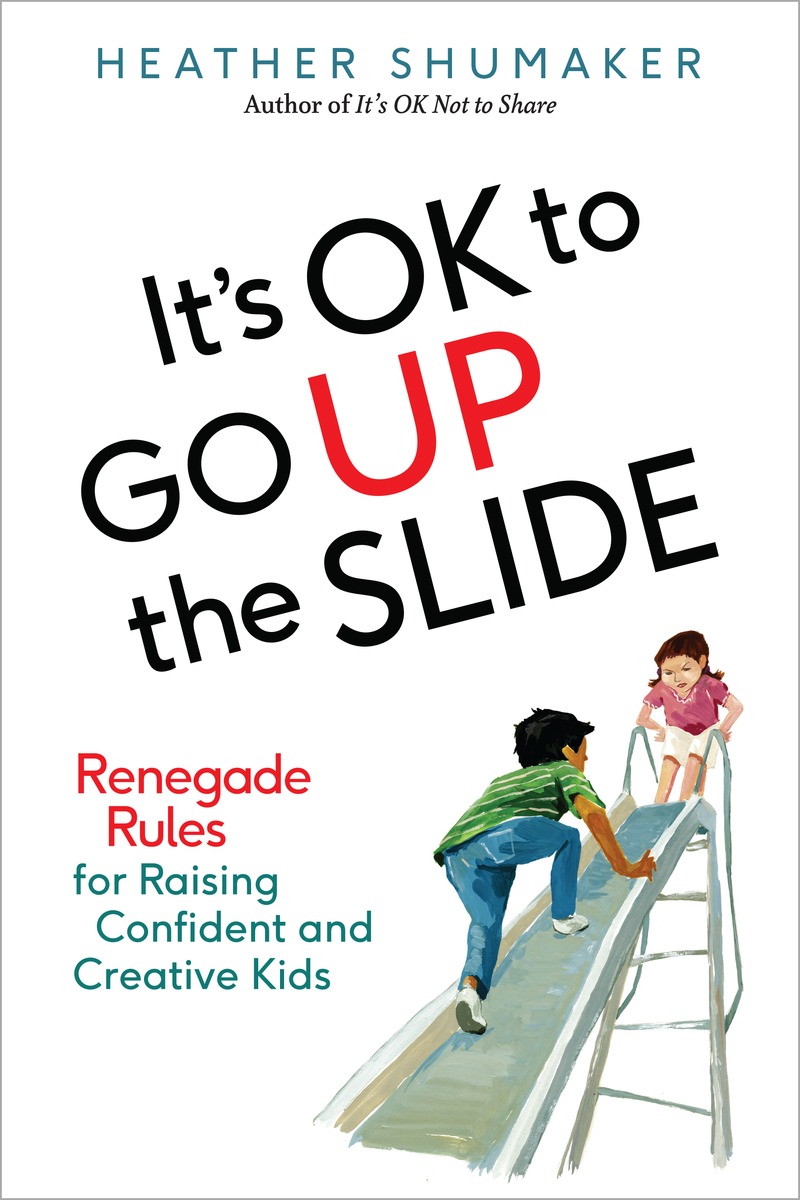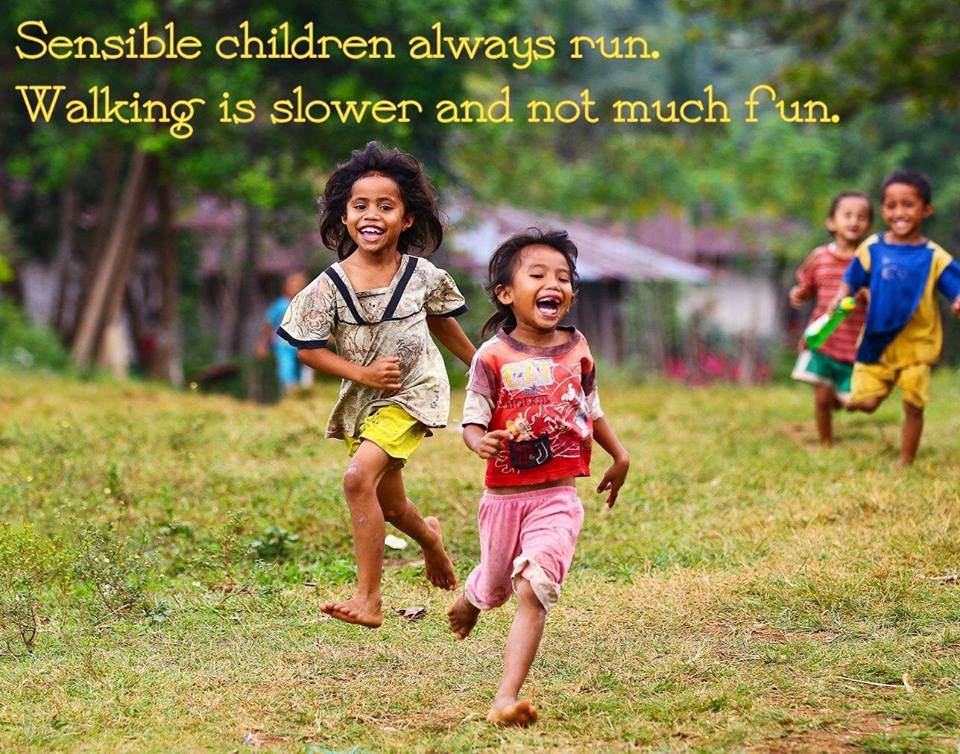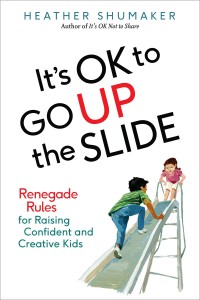A World of Books and Children
Search and enjoy 8 years of posts chock-filled with ideas from It’s OK Not to Share and beyond.

Children's behavior is not all about choices.
Choice gets a bad name in early childhood. Adults scold kids about the "choices" they make on a daily basis: "That was not a good choice" (when she hits her brother). Or perhaps we interrogate: "Was that a good choice or a bad choice?" when kids behave in a way we don't like. "Let's see you make a better choice now."
When it comes to young children, we need to recognize that it's not all about choice. Behavior at early ages is usually driven by feelings, not decision-making.
Children often can't explain why they do things, and heat of the moment "bad choice" actions are rarely thought through. Even if a young child recognizes there's a choice, she may not be able to select the option the adult wants because it's simply too hard. Impulse control is a developing skill.
Besides, "choice" implies individual options. Adults often use "choice" to mean: "do what I want you do to - or else."
When a young child hits a playmate, recognize it's not a choice. It's an action driven by intense feelings. Young children express their big feelings with their bodies. It might come out as a scream, kick, shove or bite. We need to stop the behavior, but accept the feeling. "You're mad, but I can't let you hit your brother."
The next step is to acknowledge how hard this is. Don't pass judgment about "good choices" and "bad choices." Choice implies control, and these children haven't fully developed that control yet. If they're hitting, they're acting, not thinking. Controlling impulses doesn't come consistently for many years. Some days even typically even-keeled children are out of control.
Say: "It's too hard for you right now. I'll help you stop."
Think how comforting these words are to an out-of-control, emotionally overwhelmed child. Someone will help me. Someone who's bigger and stronger when I need it most. No one's judging, no one's in trouble. Simply, "It's too hard for you right now."
Choice can be hard for kids at the best of times - do I want the red lollipop or the green one? When we think of choice as something to develop, but not something to expect, our own anger will fade at "bad choice" behavior.
Do you find yourself requesting "good choices" from a child? Do you get angrier when you perceive a child is making deliberately bad choices? How can you remain neutral and helpful?
Read the new book yet? Write a review on Goodreads or Amazon!
 The book is here! I'm on the radio today celebrating the release of It's OK to Go Up the Slide, and everywhere I go - from Denver to Vancouver to Boston - I'm hearing people share the stress points in their lives with kids. Technology. Homework. Strangers. News disasters. Gender roles. Kindergarten curriculum. Lack of time to play and time with nature. All these topics are in the book. All these stress points.
The book is here! I'm on the radio today celebrating the release of It's OK to Go Up the Slide, and everywhere I go - from Denver to Vancouver to Boston - I'm hearing people share the stress points in their lives with kids. Technology. Homework. Strangers. News disasters. Gender roles. Kindergarten curriculum. Lack of time to play and time with nature. All these topics are in the book. All these stress points.
When things are out of balance, it's time to question the way things are done. It's time to go up the slide.
That's why I'm so excited about this new book. It's going to make some people nervous. It's going to make some people mad. If kids get hold of a copy, it could cause a revolution (you mean there's no reason for me to do this worksheet?!)
As early reviewers said: "It's going to rock some boats, challenge thinking, and nudge adults in the right direction." (Jeff Johnson, Let Them Play) and "Heather Shumaker stops to re-examine almost all the conventional wisdom about childhood...She's my hero." (Lenore Skenazy, Free-Range Kids).
If you love these ideas and want to support the book - the best way to celebrate is to write a review on Amazon, Goodreads or your favorite book spot. The book is out TODAY, March 8 so it's open for reviews.
- Sometimes being a good parent - or a good teacher - means breaking all the rules.
- If something's bothering you, it's time to make a change
- Just because everyone's doing it, doesn't mean it's right for child development.
- When adult expectations clash with child development, it's time to change the adults, not the child.
See you at the top of the slide!
Early Bird gifts - Thinking of of getting a copy? Order a copy of It's OK to Go Up the Slide this week and receive free gifts as a thank you. This special pre-order offer extended until March 13, 2016. Simply 1) buy the book from any bookstore 2) send an email to slide@heathershumaker.com saying where you bought it. Order here at heathershumaker.com
What stress points do you see in families' lives? What are big ways you see adult expectations clash with what children need?

One of Bev Bos's many wise sayings.
I was in California last week, the home state of Bev Bos, legendary early childhood advocate and mentor to thousands. She died the week before I spoke on Feb. 4, and it was fitting that I should be addressing a collection of cooperative preschools. Bev dedicated 50 years to leading the Roseville Community Preschool, a co-op preschool, in California. My hosts dedicated the evening as a tribute to Bev.
I suppose that in some ways, Bev helped write my first book. It’s OK Not to Share is filled with wisdom from the School for Young Children, a preschool in my hometown in Columbus, Ohio. Bev Bos was a great friend to SYC and all the teachers there. They visited each other’s programs and spread inspiration.
It’s OK Not to Share had many mentors: Mr. Rogers from Mr. Rogers Neighborhood, Bev Bos, Haim Ginott, teachers from SYC who’d taught 30 and 40 years in the classroom. Some of these inspirations I met, some of them I’ve never met, but their ideas have lived and spread. That’s the power of a true mentor. Someone whose influence is not contained in a single life.
I never met Bev Bos, but I was looking forward to meeting her in April. We were both due to keynote at a wonderful Play conference in Washington, DC. Now the rest of us need to carry that spark on.
Who are your mentors - in life, writing or early childhood? Have you ever reached out to thank this amazing person?

